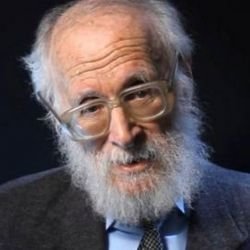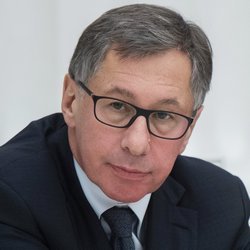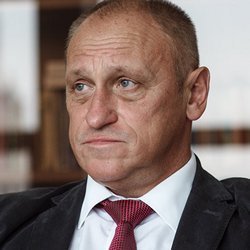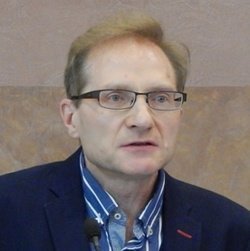Aleksey Kudrin: “Market reforms were necessary, although absolutely unprepared”
Chubais, Kudrin, Aven, Auzan and others remembered Yegor Gaidar at the forum named after him
Today there are two significant events in Russia at once: Vladimir Putin's address to the Federal Assembly and Gaidar Forum's opening, where a Realnoe Vremya correspondent is also working. Russian Davos started with a discussion about the theoretical and practical legacy of the reformer, whose name the forum bears. The assembled experts, almost all of them — colleagues and friends of the author of the “shock therapy”, discussed the significance of Gaidar's reforms for Russia and argued about who Yegor Timurovich was more: a theorist or a practitioner?
Gaidar: a politician or a scientist?
Sergey Sinelnikov-Murylev, the rector of the Russian Academy of Foreign Trade, took on the role of the moderator of the discussion. In his opinion, Yegor Gaidar was, first of all, a scientist and only then a politician.
“He had a great memory, outstanding speed of mind, the speed of information absorption," says Sinelnikov-Murylev.
Academician of the Russian Academy of Sciences Revold Entov made a detailed report on the theoretical heritage of Gaidar.

Peter Aven, the chairperson of the board of directors at Alfa-Bank, believes that Gaidar did not seek to be a scientist, preferring to do practical work.

Aven was objected by the head of Rusnano, Anatoly Chubais.
“As for the discussion about whether Gaidar was a scientist. I want to ask a question. Is Marx a scientist? Or were Huntington and Fukuyama scientists? In simple terms, abstracting from ideology, then Marx created the theory about the transition from capitalism to socialism, and Gaidar had to create a theory of the transition from socialism to capitalism," says Chubais. “For me, Gaidar's works were a scientific reinterpretation of Marxism, and they are exactly equal in their level to the works of, for example, Huntington... Gaidar described the phenomenon such as transformational recession, gave it a scientific definition…
As a result of the dispute, we can cite the position of Dean of the Economics Department of the Moscow State University, Alexander Auzan, who suggested that “Gaidar would be uncomfortable on any of the shelves wherever he was put.”
“Why are we discussing this? Apparently, to understand how to “canonize” Gaidar properly: as a politician, thinker, or scientist. This is an important task, but I personally cannot contribute to its solution because I am not able to participate in the canonization process. Yegor will be uncomfortable on any shelf wherever we put him," Auzan concluded.
“Gaidar predicted the collapse of pension and insurance systems”
Besides, according to Alexander Auzan, “Gaidar of the early 1990s and Gaidar of the year 2009 are different people: he definitely was not frozen in the idea that by changing politics we would change the country.”

Mikhail Dmitriev, the chief researcher at the Centre for public policy and public administration at the Institute of Social Sciences of the Russian Academy of Sciences, recalled Yegor Gaidar's outstanding analytical skills and complained that there is no one in Russia to assess the current economic situation so accurately as to predict its development in the strategic horizon.

“Money didn't work, barter worked. Gaidar's reforms were needed, but they were unprepared”
The discussion did not go without a reaction to the criticism of Gaidar's reforms, which is still strong today. Anatoly Chubais quoted and described one of the publications that appeared in the federal press on the opening day of Gaidar Forum.

Assessing Gaidar's reforms, the authoritative economist and head of the Russian Accounting Chamber, Aleksey Kudrin, admitted that they were necessary, although they were not properly prepared.
“I think Gaidar is quite a great man who really changed the history of Russia. His reforms were necessary because the situation in the country was critical... At that time I came to work in the city hall of St. Petersburg, I saw how on the eve of the collapse of the USSR there was not enough food and other goods. Money was not working, the plan was not working, and the economy was unbalanced. We had ledgers of goods in the city hall that we could change in other regions for the goods that we needed. Money was not working, barter worked," Kudrin remembers. “Gaidar was assigned as Acting Prime Minister, and he made a historical contribution to the development of Russia. What were the alternatives? I think no one who was then in the elite and had to make certain decisions could do what Gaidar did. The implementation of his reforms was necessary, although they were completely unprepared.”